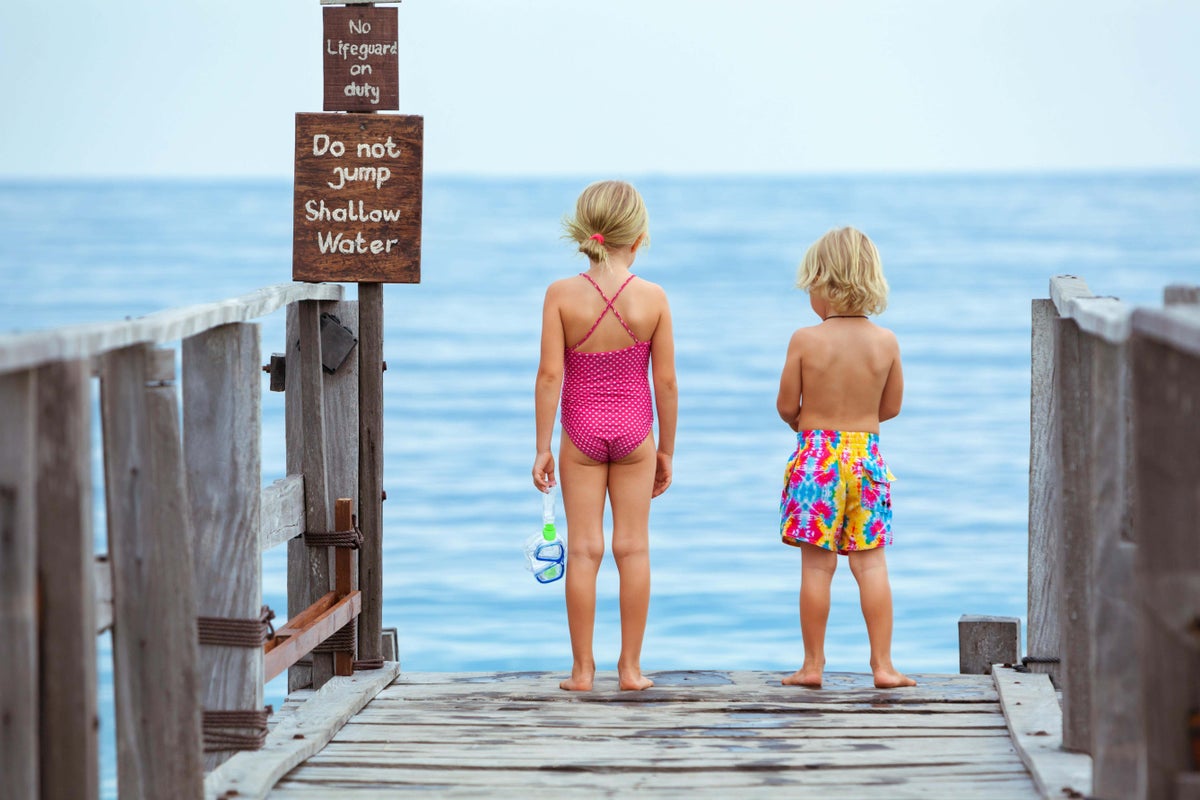
The most memorable moments of the summer holidays often involve water – whether that be a paddling pool in the garden, local lido, lake or the sea. However, it’s important to make sure the whole family is clued up about potential hazards and risks that water can pose.
“With more people enjoying water during summertime, a disproportionate number of people drown in the UK between May and August, and we see an increased number of drownings in periods of extreme heat,” says Jo Talbot, commercial director at Royal Life Saving Society UK (RLSS UK). “Through the delivery of high-quality water safety education and advice, accidental drownings can be prevented.”
Here are some safety tips for parents of under fives, over fives and teens, so that wherever you go this summer, you can enjoy the refreshing water stress-free.
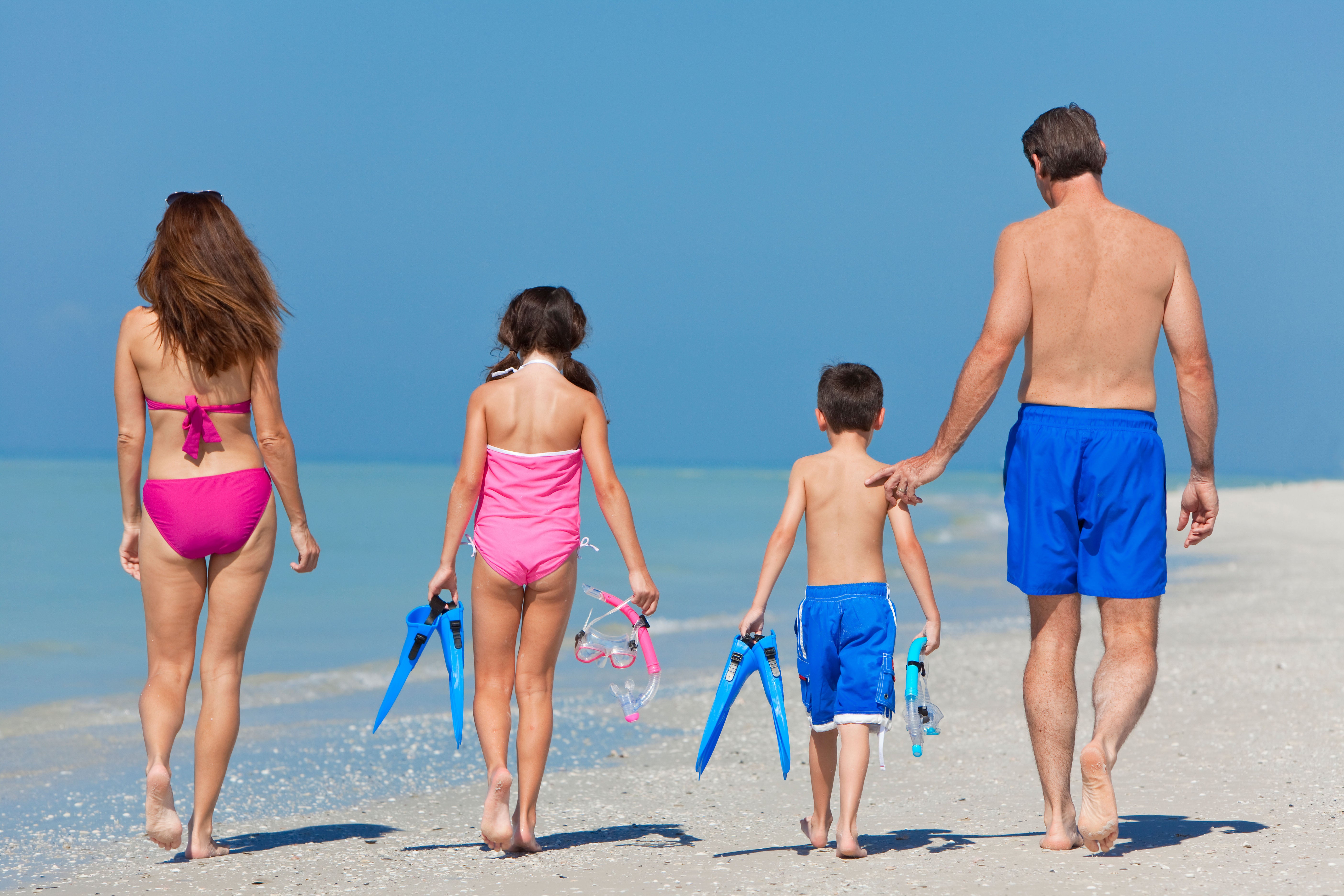
Tips for parents of under fives:
Supervise
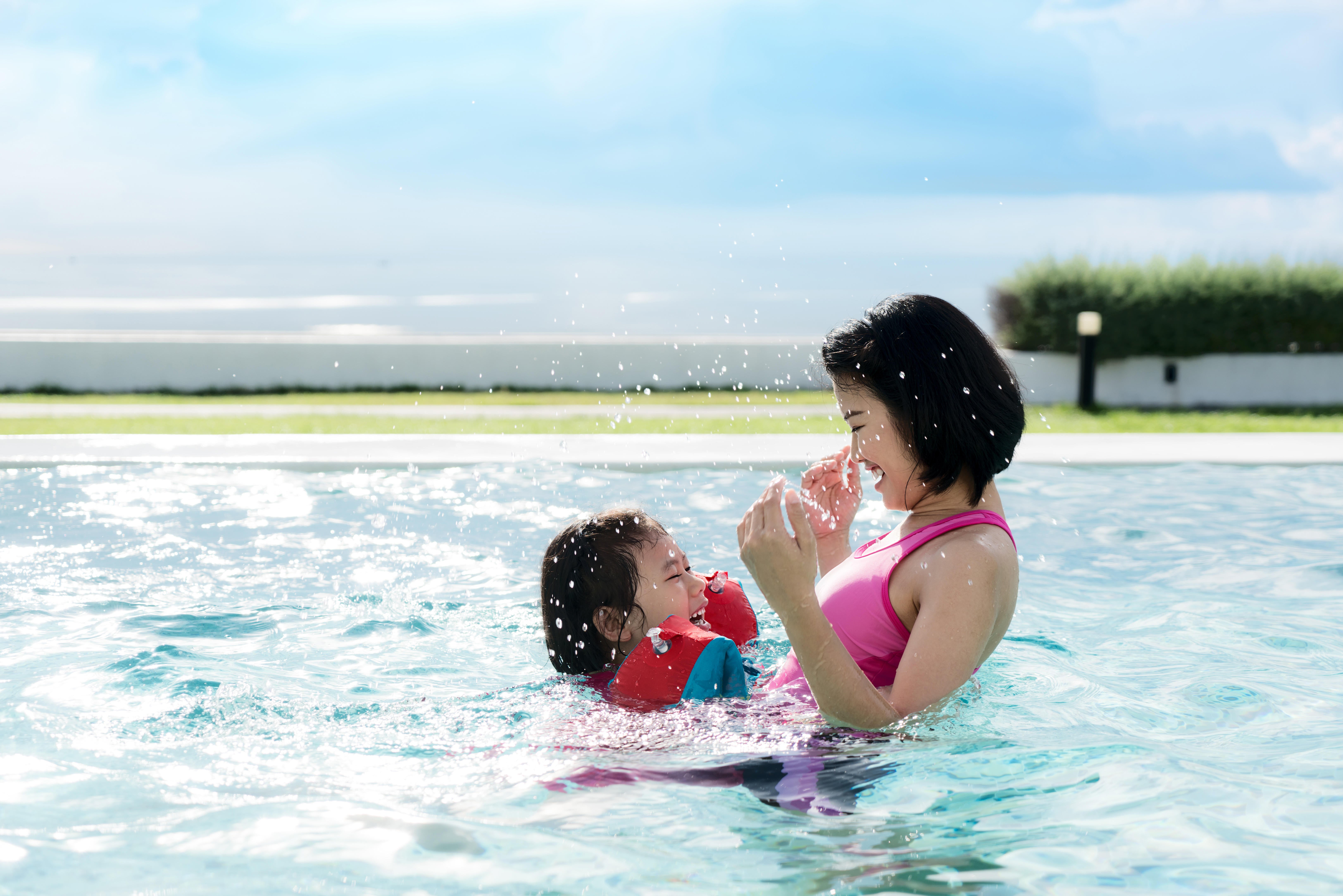
“Always watch children near water and keep them within arm’s reach,” advises Talbot. “When your children are in the water, supervise them at all times, enjoy the water with them.”
Carlene McAvoy, senior policy manager for water safety at The Royal Society for the Prevention of Accidents (RoSPA) agrees and adds: “Hold your child’s hand when near any waterways inland or at the coast.”
Secure a pram
If a pram’s brake doesn’t work, it can lead to the pram rolling away, potentially causing injury to the child and others.
“Always secure the brake on a pushchair or pram when near waterways,” advises McAvoy.
Lock and cover pools or jacuzzis
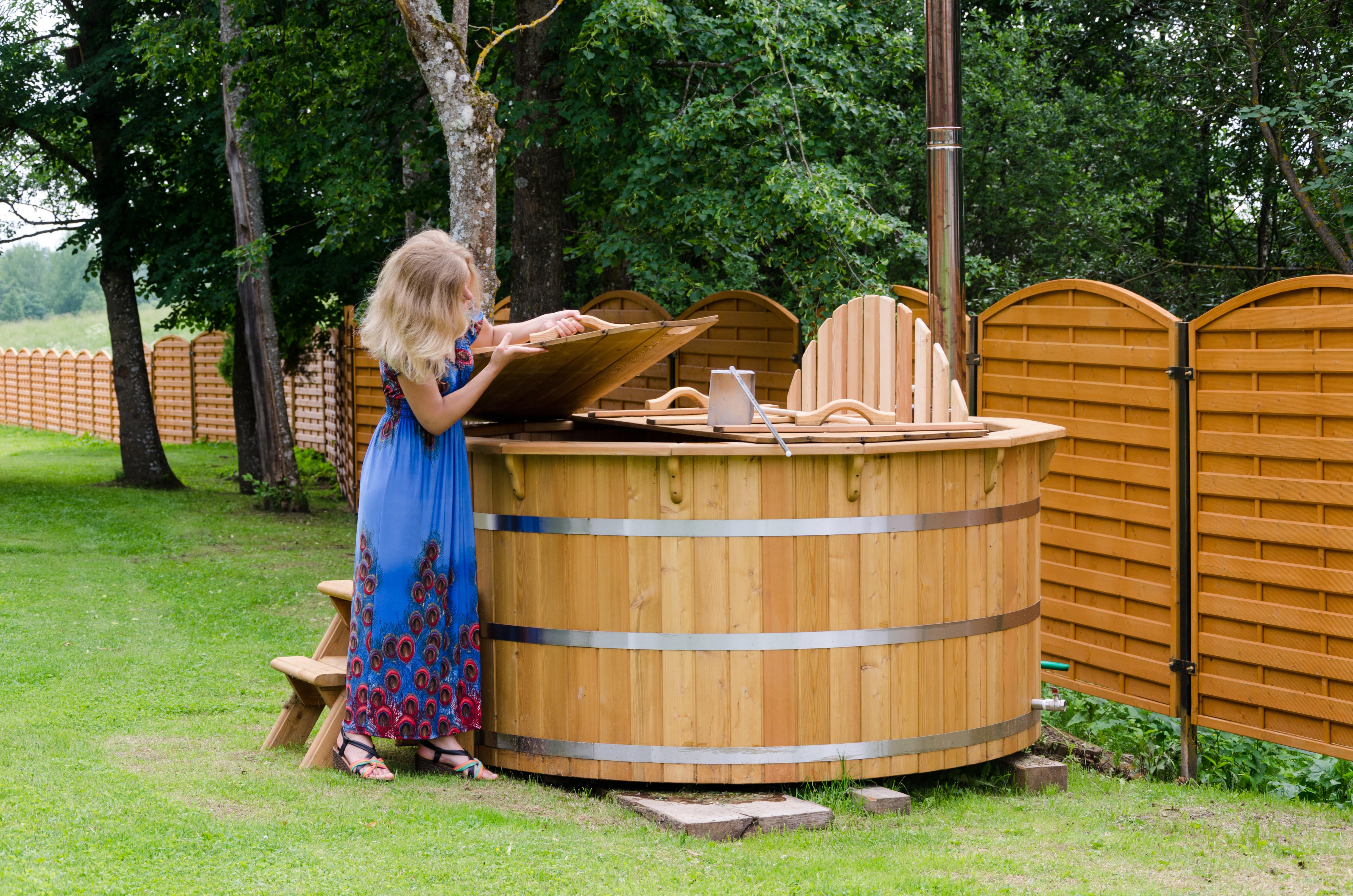
“If you have a hot or cold tub, make sure it’s locked and covered so that young children cannot access it,” recommends McAvoy. “Paddling pools should always be emptied and stored away somewhere safe when not in use.”
Fence off garden ponds
Garden ponds can be a hazard, particularly for young children, but with proper precautions and design the risks can be significantly minimised.
“Be aware if visiting places or friends with garden ponds,” says McAvoy. “Always keep an eye on your young ones. If you have a pond, we recommend filling it in or securely fencing it off.”
Tips for parents of over fives:
Beware of slippery surfaces
“Local doesn’t always mean safe. If you are venturing inland, be aware of dangers around the water such as unsteady ground and slippery surfaces,” says McAvoy.
Go to supervised swimming sites
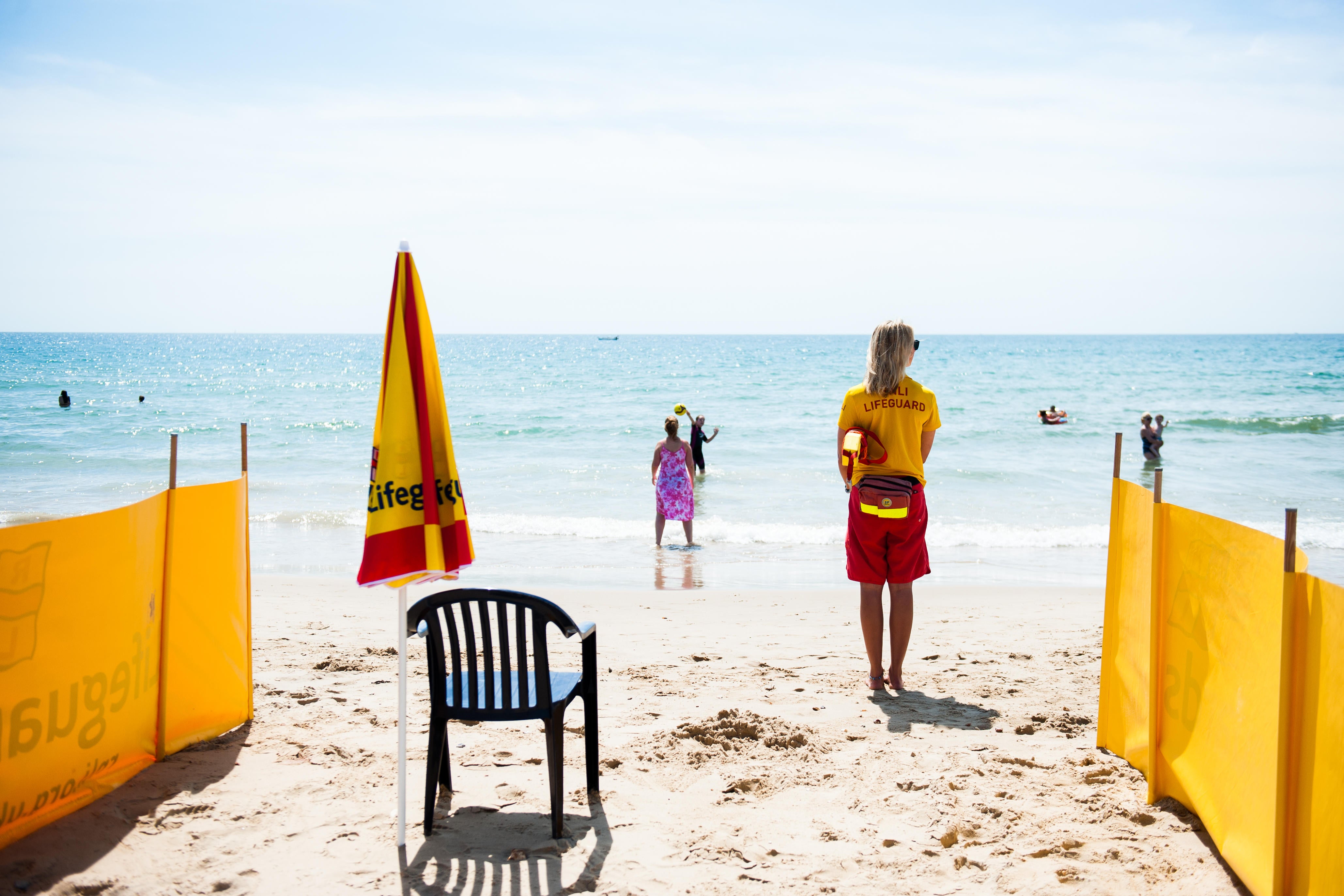
“If you decide to go swimming with your children, it’s best to use a properly supervised site with lifeguards such as a life-guarded beach, lido or swimming pool,” recommends McAvoy.
Choose bright coloured swimwear
“Dress your child in brightly coloured swimwear so they can be seen,” suggests Talbot.
Look at tide times
“Don’t get cut off by tides,” stresses McAvoy. “If you’re heading to the beach or a tidal lake or river, take some time to plan your day around the tides. Go to the Met Office to enter your location and find out what time high and low tide will be.”
Point out key safety and warning signs
“Teach your children to look out for safety signs or warnings that help provide information to keep them safe, for example, different coloured flags at the beach,” recommends Talbot.
Teach them about the Water Safety Code
The Water Safety Code is a set of simple, easy-to-remember guidelines which encourages people to Stop and Think, Stay Together, Call 999 and Float.
“Teach children and young people to call 999 in an emergency and to tell the call operator that you have a water-based emergency at the coast or inland,” advises McAvoy.
Tips for parents of teens:
Educate them on water safety hazards
It’s crucial to educate teens about water hazards to ensure their safety.
“We encourage parents of teenagers to discuss water safety and the dangers of inland water, such as rivers, lakes and quarries,” says Talbot. “Being able to swim can sometimes not be enough to keep them safe.
“Hazards under the water can cause entrapment, currents can pull a person underwater; and even when the air temperature is high the water can be cold which will affect a person’s ability to swim, causing them to drown.”
Tell them about the risks of alcohol near water
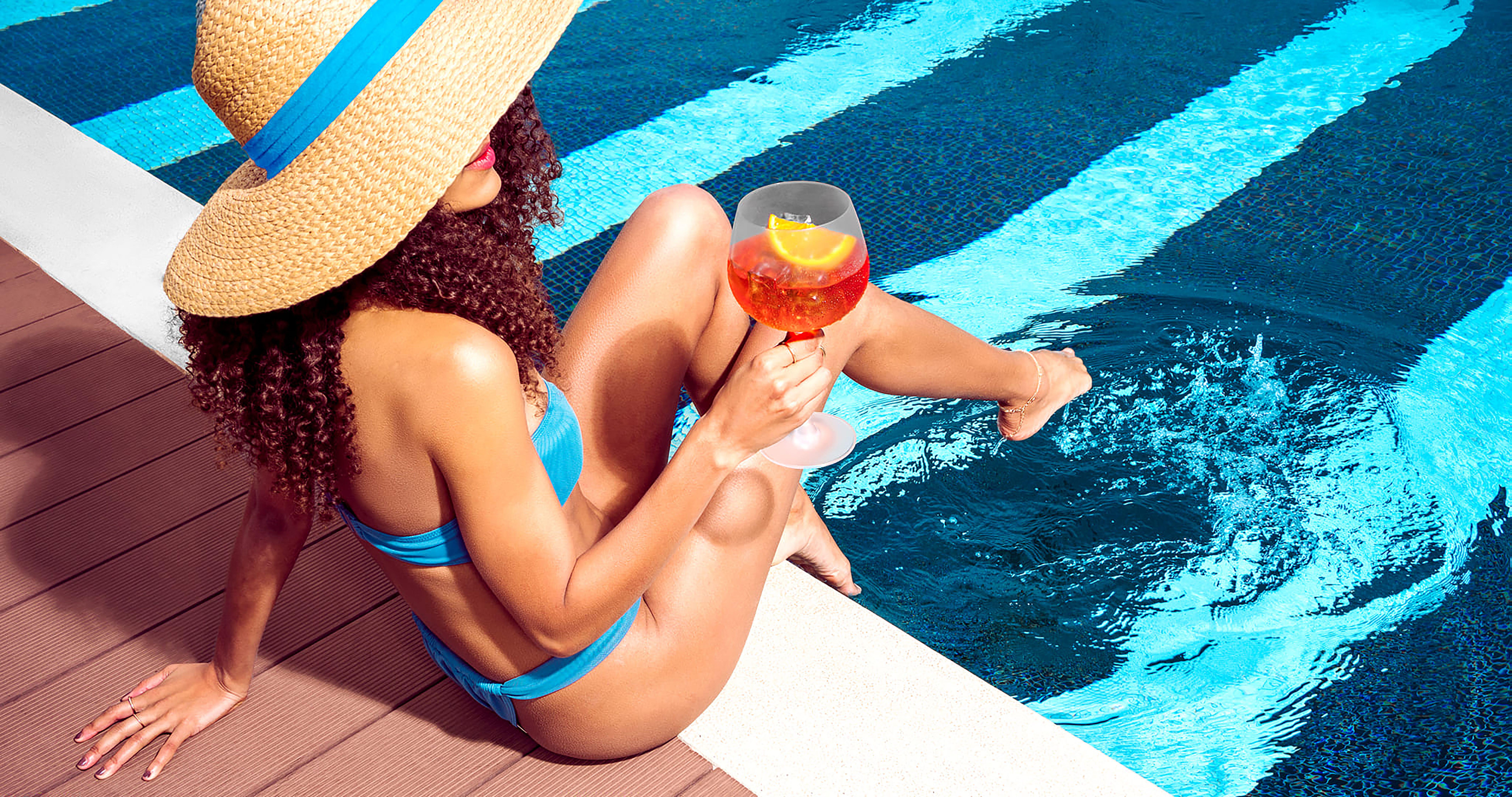
Drinking alcohol, especially excessively, poses several risks when combined with water or when near bodies of water.
Explain how alcohol can impair your judgement and increase the chances of an accident, advises McAvoy.
Warn them about the dangers of jumping into the unknown
“You can’t always see what’s under the water and if you crash into a rock or other submerged items you’re at risk of serious impact injuries,” warns McAvoy.
Fitness experts on risks of running in a heatwave – and how to stay safe
What is taurine? The energy drink ingredient that might do more harm than good
Mother’s rare condition was ‘brushed off’ by hospital as pregnancy symptom
What kind of exercise can help improve your sleep?
Scientists warn antidepressant withdrawal downplayed by ‘industry-funded’ studies
A person in the US has died from the plague. Here’s what you should know







